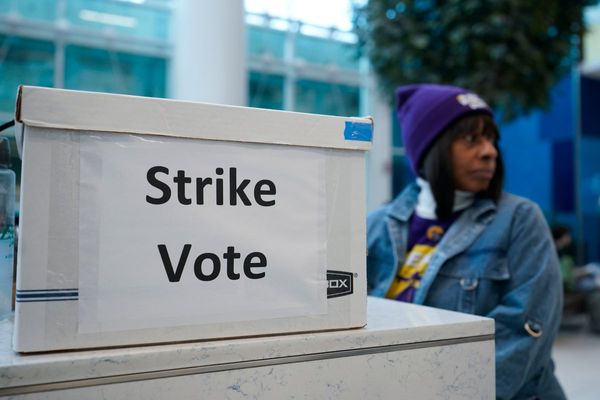Bank of America (BAC) posted softer-than-expected second quarter earnings Monday as investment banking slump washes over solid net interest income gains.
Shares got an early boost, however, by comments from CFO Alastair Borthwick, who said the bank could see net interest income -- a key metric for bank profits -- rise by as much as a $1 billion by the end of the current quarter as the Fed continues to signal higher interest rates.
Bank of America said profit for the three months ended in June were tabbed at 73 cents per share, down 2.7% from the same period last year and 7 cents shy of the Street consensus forecast of 80 cents per share. Net income was pegged at $6.2 billion
Group revenues, the bank said, rose 6% from last year to $22.7 billion, falling largely in-line with analysts' estimates, as net interest income rose 22% to $12.4 billion thanks to the broader increase in interest rates. Investment banking fees slumped 47% owing to a global deal-making slump.
“Our strong organic growth engine once again was evident in new account openings for checking, consumer investments, and small businesses, as well as net new Merrill and Private Bank households and new commercial banking customers," said CEO Brian Moynihan. "This solid client activity across our businesses, coupled with higher interest rates, drove strong net interest income growth and allowed us to perform well in a weakened capital markets environment.
"We grew revenue 6% and delivered our fourth straight quarter of operating leverage. Our U.S. consumer clients remained resilient with continued strong deposit balances and spending levels,." he added. "Loan growth continued across our franchise and our markets teams helped clients navigate significant volatility reflecting economic uncertainty.
Bank of America shares were marked 1.15% higher in early trading following the earnings release to change hands at $32.62
Bank earnings got off to a mixed start last week as JPMorgan (JPM) posted a 27% decline in second quarter earnings, with an $8.6 billion tally that missed Street forecasts, and set aside $1.1 billion in reserves to set against bad loans and credit losses, linked in part to the 'deteriorating' economic outlook.
JPMorgan CEO Jamie Dimon said geopolitical tension, high inflation, waning consumer confidence, interest rate uncertainty and the war in Ukraine "are very likely to have negative consequences on the global economy sometime down the road."
Citigroup C, however, had one of its best post-earnings jumps in more than a decade Friday after it posted a Street-beating bottom line of $2.19 per share on revenues of $19.64 billion.
The bank also set aside $375 million to cover potential bad-loan losses, a much smaller figure than that of its rivals Wells Fargo (WFC) and JPMorgan.







